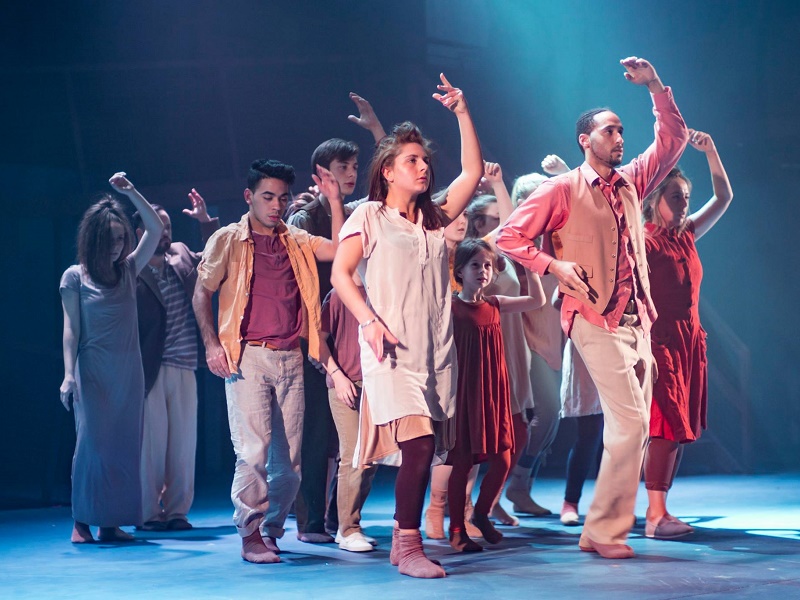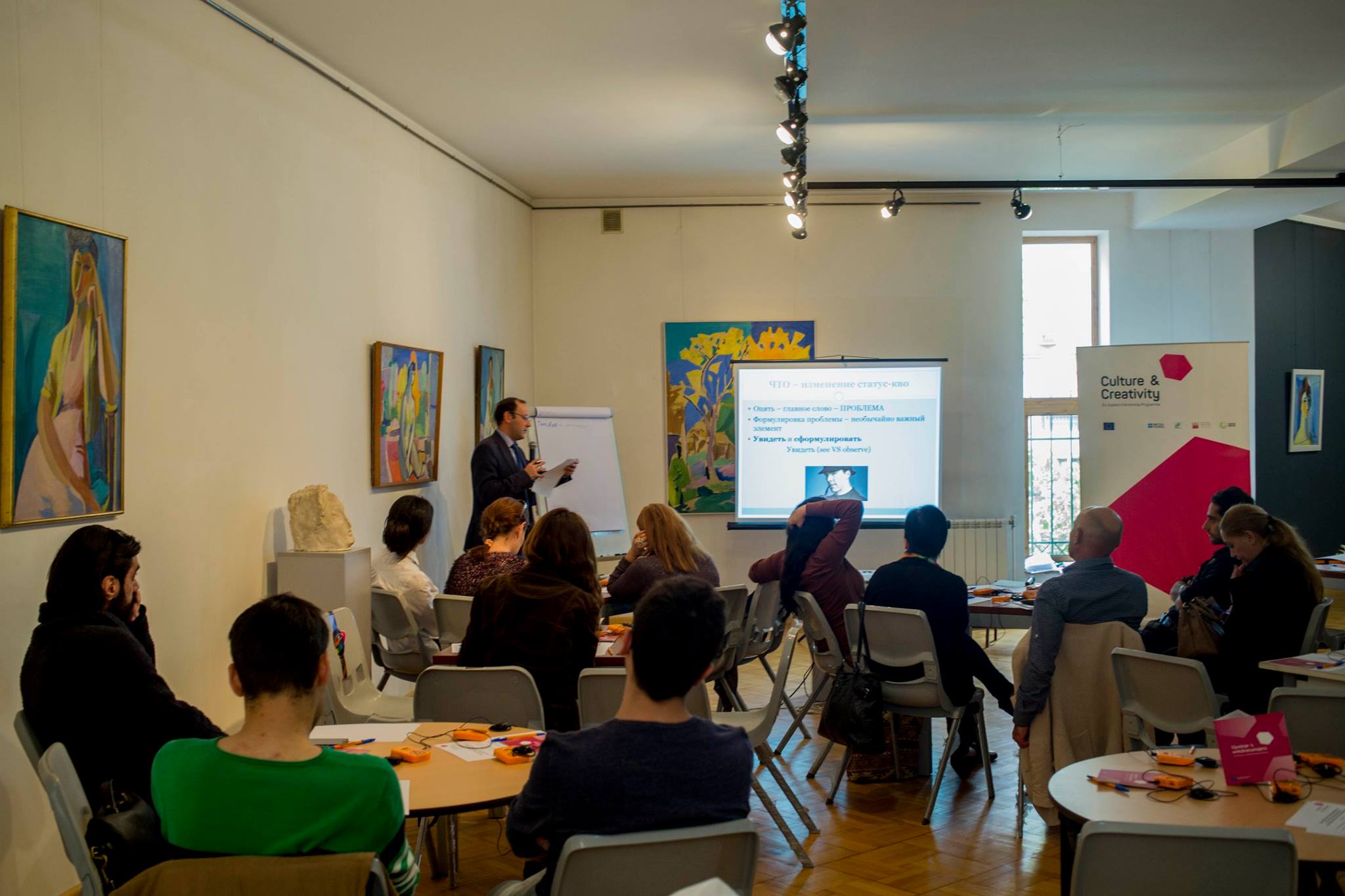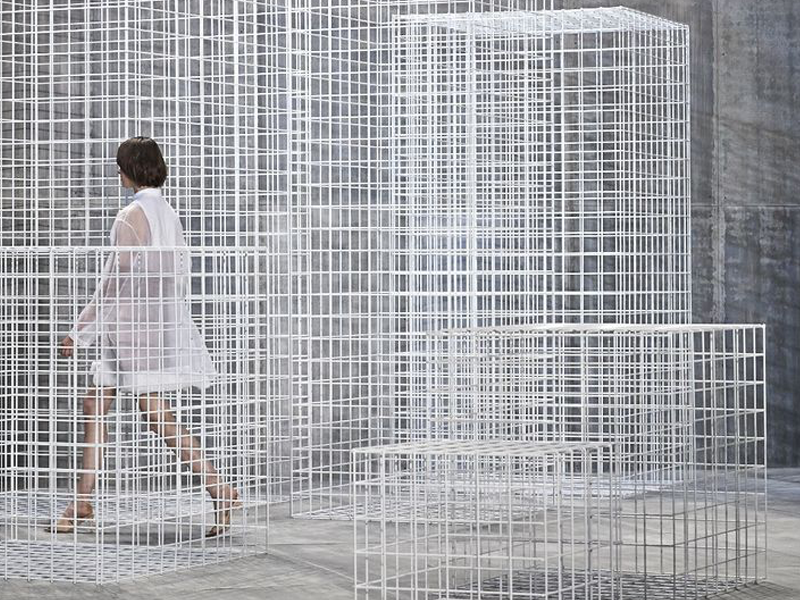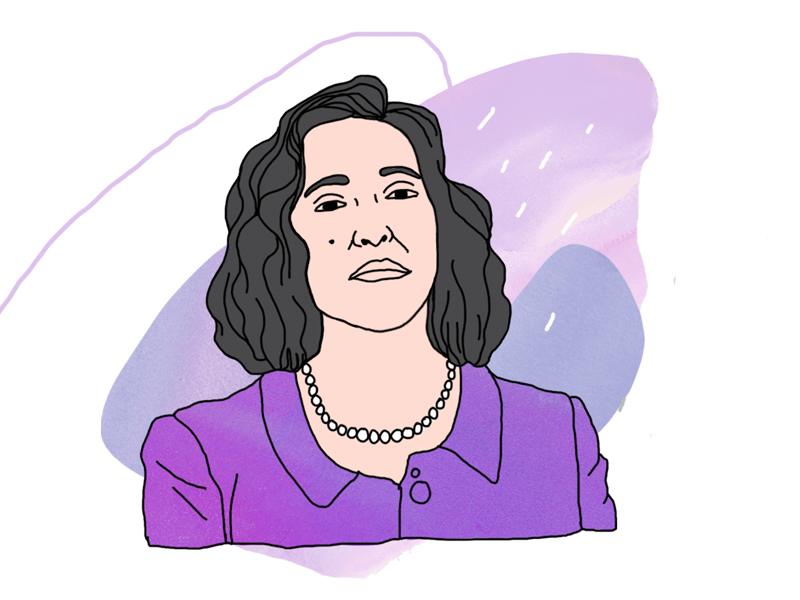
David Conway and Linda Foley: “Culture can change the life of every person, and not just the lives of those who appear on stage”
Linda, David can you please tell us about Chickenshed, its mission and history.
Linda Foley: Chickenshed is a London-based theatre organisation founded in 1974. Initially it operated on a voluntary basis, but with time it developed into a professional theatre company. Our goal is to make theatre available to every person regardless of his or her origin or abilities.
Our mission is to bring people together through the performing arts. We have developed a work method that we call the “inclusive creative method.” That is, it is available to any child or teenager from difficult homes, for children and young people with special needs.
Surely such an institution needs support, including financial support, to fully implement its projects or initiatives. Have you had, as an organisation, experience of participating in programmes such as Creative Europe?
L. F.: Within the framework of the TACIS programme, funded by the European Union, we worked closely with two partners from Russia. One of them was from St. Petersburg. With David’s help we established collaboration with an organisation that provides support for families with disabled children. Our work was aimed at creating an inclusive theatre for children and youth.
“Inclusive” means that it is available to each person, especially to families where children have been separated by fate, or for example, the need to get an education away from home, or were placed in special establishments for health reasons. It is very important for us that children interact, have the possibility of working and playing together.
Culture can change lives…
D. C.: Yes, culture can change lives! This is our main idea. This idea is also promoted by Creative Europe; therefore our project conforms like no other to its requirements. We have a common vision and a common concept of the functions of culture.
L.F.: Indeed. Chickenshed treats everyone equally – here no-one gets labelled. Our organisation is a safe creative space open to everyone. Creative ideas are generated by the children and young people themselves, whereas our art team helps give this creativity shape.
We try to bring together people from very different social environments, help them establish strong ties, create an environment of cooperation and mutual support and develop their potential.
D.C.: As a result of talking with Tim Williams, we attended a seminar on the rules of applying for Creative Europe, organised by the British Council in London. That was how we found out about the opportunity to get a grant for a trip to Kyiv to meet potential partners. We submitted our application and it was accepted.
Have you come to Ukraine to meet local cultural institutions, and, possibly, find among them partners for your project?
L.F.: Yes, exactly.
D.C.: In the space of just a few days in Ukraine, we have already managed to hold a number of meetings. For example, with the Deputy Minister of Youth and Sports, Mr. Yarema. If our application is selected for participation in the programme, I’m certain that we will receive support from the Ministry of Youth and Sports.
We have also met with two institutions that are interested in becoming our partners. One of them is from Ukraine, the other from Moldova.
Are you looking for partners not just in Ukraine?
D.C.: Yes. And perhaps, we can also include Georgia in the future. But Ukraine and Moldova are our priorities.
L.F.: In addition, we have also managed to meet with the director of the SOS Children’s Villages Ukraine charity Andrii Chuprikov. He has shown interest in our project and we are in turn interested in what he does. In Britain, Chickenshed collaborates with the Barnardo’s organisation, which just like SOS Children’s Villages Ukraine is also a charity helping children and youth find adoptive families and provides support in difficult life circumstances. We have similar experience and see great potential in this collaboration.
D.C.: One of the areas that we have identified as important and significant within the framework of our project is cooperation with the Pokazhi theatre from Zaporizhia. Only yesterday we had a meeting with the theatre’s director Yana Sasina, and we’re very happy with the result.
That is, the circle of potential partners that you can attract to your projects thanks to Creative Europe is quite extensive?
D.C.: Yes, they can be the most different non-profit institutions, volunteer and social organisations or art institutions. For example, we had a meeting today with the Kyiv-based Theatre of Operetta.
One of Chickenshed’s approaches is that we maintain very close contact with the world of show business, as well as with the theatre world of London. Many London theatre stars support Chickenshed. And when people see such interest, their interest is also awakened. Many of Chickenshed’s patrons have become prominent figures. Princess Diana was arguably one of the most famous. She showed incredible support and brought her two children to Chickenshed.
L.F.: The remarkable British actress Judy Dench is also a supporter of ours. We are very lucky to have the support of such people.
Ukraine’s own national Creative Desk was unveiled recently. In your opinion, what are the main opportunities that the programme can offer people from the cultural and creative community?
D.C.: Creative Europe’s main goal is to erase all borders. I think that it is important for Ukraine to create ties with other cultures beyond its physical borders. Ukrainian culture has great significance from the historical point of view, but alas Europe knows less about it than it should. Therefore, this programme will be for Ukraine a great opportunity to introduce its culture to the whole of Europe, show its talents, to study learn about Europe’s art and culture at a deeper level and add experience gained into your own cultural life.
I organise an international music festival in Levoca, Slovakia. I invited Ukrainian musicians to the festival and they had great success with local audiences. While in Kyiv I organised concerts by Polish and British musicians. Similarcultural exchanges open new horizons for both cultural professionals and the audience.
L.F.: I would also like to add to what David said about new horizons for the audience. We would like to crack open the door into the world of theatre for the viewer, to allow him or her to immerse himself in this atmosphere, to get inspired by what he or she sees. This will also be an absolutely new experience for many families who did not have such opportunities before, but who will be truly proud of their children performing on stage.




